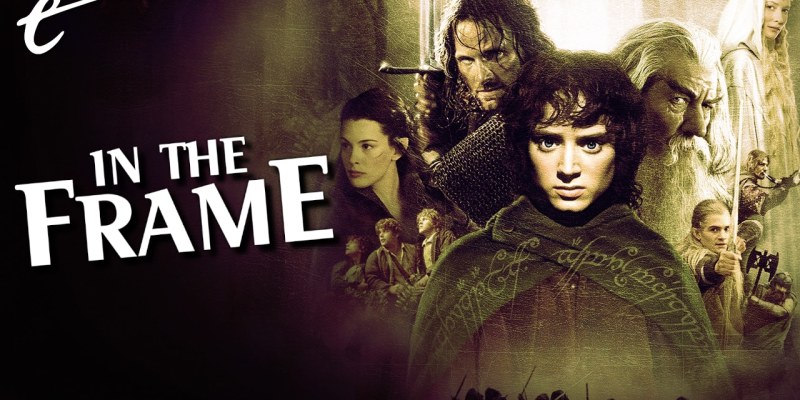The Lord of the Rings is an interesting cultural artifact. It is at once a timeless fantasy epic and very much a product of its particular time. This is especially true of Peter Jackson’s cinematic adaptation.
The Lord of the Rings documents the final battle for Middle-earth, an epic battle between the forces of good and evil to determine the fate of their world. It is a world of swords and sorcery, of elves and orcs, of magic and mysticism. Author J.R.R. Tolkien drew freely from Norse mythology, in an attempt to fashion what he described as “a body of more or less connected legend … which (he) could dedicate simply to: to England.”
It’s important to note the period in which Tolkien produced this epic saga. Tolkien scholars suggest that the author began working in earnest on The Hobbit in the summer of 1930, although his sons argue that the book began in the bedtime stories he told them during the decade prior. Tolkien submitted The Lord of the Rings to his publisher in 1949. As such, Tolkien’s work on the fantasy epic spans from the aftermath of the First World War to five years after the end of the Second World War.
Tolkien was adamant that the resulting epic was a timeless story with no tangible connection to the world in which it was written and read. On the topic of whether it had been influenced by either of those two conflicts, Tolkien wrote, “Personally I do not think that either war … had any influence upon either the plot or the manner of its unfolding.” However, critics have argued that the book is infused with subtext that echoes Tolkien’s own experiences of the First World War.

Accepting Tolkien’s word that The Lord of the Rings was written without any intended resonance, his readers still made that connection. This is the famous “death of the author” and similar to how Gone with the Wind seemed to connect with postwar audiences in Europe as a timely tale of survival in a decimated land, despite being filmed before the Second World War. Whether Tolkien intended it or not, it was impossible to read The Lord of the Rings outside the context of the world in which it was published.
Keith Akers argued that the moral clarity of Middle-earth’s struggle against Sauron is “very similar to how we remember the Second World War,” as “the good war.” Actor Ian McKellen confessed that the book evoked his own experiences of the conflict, acknowledging Tolkien’s denials while also explaining, “Having been born in 1939 and remembering sleeping in an Anderson Shelter against the Nazi bombers, I found it easy to identify Hitler with Sauron.”
This is all a roundabout way of illustrating that even timeless epics inevitably exist and are received in a context of their own times. This is also true of Peter Jackson’s epic cinematic adaptation of The Lord of the Rings, with the 20th anniversary of the release of The Fellowship of the Ring this December. Those movies are rightly regarded as modern classics of American cinema and are frequently compared to the original Star Wars trilogy in terms of cultural impact.
Jackson’s Lord of the Rings trilogy undoubtedly resonated with contemporary audiences. The Fellowship of the Ring was the second-highest grossing movie of 2001 at the global box office, while both The Two Towers and The Return of the King topped their respective years. The Return of the King swept the Oscars in its year, winning all 11 awards for which it was nominated, tying with Titanic and Ben Hur for most wins ever. Gollum (Andy Serkis) even visited the MTV Movie Awards.

The movie trilogy was a phenomenal accomplishment. A large part of its success undoubtedly comes down to the fact that it is very good. However, the movies also seemed to be the perfect blockbusters for their cultural moment. Much like the Star Wars movies had connected with a disillusioned generation in the wake of the Vietnam War and the Watergate scandal, the Lord of the Rings trilogy seemed to offer audiences exactly what they needed when they needed it.
Watched today, Peter Jackson’s Lord of the Rings trilogy is an interesting blockbuster monument. It is surprisingly earnest and sincere by the standards of modern blockbusters. It probably has fewer jokes than something like Denis Villeneuve’s Dune, to pick a recent example of a comparable epic that received criticism for being “humorless.” There’s no protective self-awareness or self-reflective irony in Jackson’s cinematic adaptation. Jackson takes the books (and his audience) seriously.
Perhaps the trilogy landed at the perfect moment. The Fellowship of the Ring was released just three months after the terrorist attacks on September 11, 2001. Of course, Jackson had shot and edited the movie (and shot most of the next two films) long before the attacks, so there was no intentionality there. Indeed, Jackson even edited the collapse of Sauron’s tower at the end of The Return of the King to make it less evocative of the collapse of the World Trade Center.
Some contemporary press coverage acknowledged the resonance of fantasy films like Harry Potter and the Chamber of Secrets and The Fellowship of the Ring in the wake of these terrorist attacks, allowing audiences to escape into fantasy in uncertain times. As Christopher Borrelli pointed out on the tenth anniversary of the attacks, the opening line that “The world is changed,” likely resonated with viewers adapting to a radically changing world order.

However, there was a more fundamental resonance at play. In the immediate aftermath of the attacks, there was a sense that it was time for America to approach the world earnestly and sincerely. The 1990s had been a decade of postmodernism and irreverence, where the hero’s journey played out in the computer-simulated illusion of The Matrix. After a decade where nothing mattered, suddenly everything mattered.
In her epilogue to the 2002 edition of Politics of Postmodernism, Linda Hutcheon declared, “Let’s just say it: it’s over.” On September 18, 2001, Vanity Fair editor Graydon Carter declared “the end of the age of irony.” Less than a week later, in the pages of Time, Roger Rosenblatt challenged readers, “Are you looking for something to take seriously? Begin with evil.” In The Boston Phoenix, Camille Dodero declared her hope that “a coddled generation that bathed itself in sarcasm will get serious.”
Of course, much like Francis Fukuyama declaring “the end of history” with the fall of the Berlin Wall, reports of irony’s demise were greatly exaggerated. Even at the time, humor returned quite quickly. However, there was an obvious and understandable tenderness. Jokes about George W. Bush were toned down in the immediate aftermath of the attacks. Gilbert Gottfried’s attempt to mine humor from the situation led to a memetic cry of “too soon” from the audience.
With this in mind, it makes sense that Jackson’s Lord of the Rings trilogy appealed to audiences at that uncertain time. The story’s quartet of Hobbits have lived a “coddled” life within the sheltered surroundings of the Shire and find themselves forced to “get serious.” This is a story that treats evil as something to “take seriously.” The abstract evil embodied by Sauron perhaps resonated with the moral framing of the “War on Terror,” a war on a concept rather than a physical object.

It’s hard not to draw a connection between the moral clarity of the Lord of the Rings films and the moral certainty of the rhetoric of the Bush administration: “a war to save civilization itself,” “with us or against us,” “the story of our times, a story of courage defeating cruelty and light overcoming darkness.” Franchise actors grappled with this in different ways. Viggo Mortensen protested against the war and any association with the films. In contrast, John Rhys-Davies leaned into that reading of the work.
Of course, Jackson’s Lord of the Rings trilogy isn’t about the War on Terror. It could not be. However, watching the trilogy two decades removed from that original context, it’s easy to understand why this earnest saga of good and evil resonated with audiences at that moment in time. At a time when the world seemed more chaotic and arbitrary than ever, there was an appealing quality to the earnestness and sincerity of this timeless story of good persevering in the face of unimaginable evil.
The Lord of the Rings is a timeless classic of fantasy fiction; both the books and the films endure well beyond their original contexts. However, every work of art is also a product of its time, and Peter Jackson’s Lord of the Rings provided audiences with just what they needed just when they needed it.
